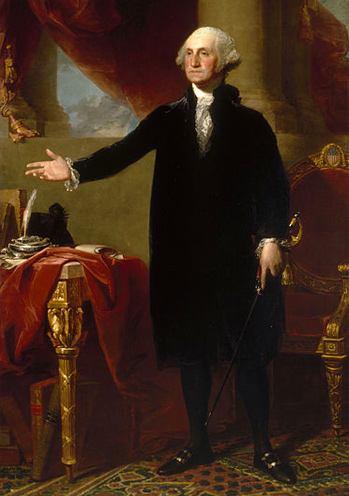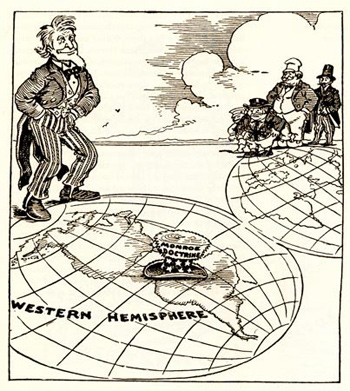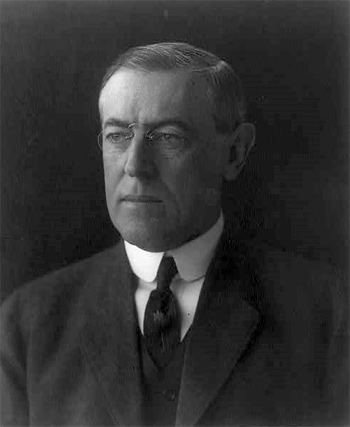The United States was not allied with either side in World War I. As a matter of fact, the United States was in conflict as to whom we should support. We had historical and cultural ties to Britain and had fought for independence along with the French. However, many German-Americans supported the Central Powers, along with many Irish-Americans who resented British control in Ireland. Why was the United States so determined to stay out of World War I? Let's examine some documents.
![]() Click on the images below to view the documents.
Click on the images below to view the documents.
 Source: Washington, Lansdowne portrait, Wikimedia
Source: Washington, Lansdowne portrait, Wikimedia
|
"It is our true policy to steer clear of permanent alliances with any portion of the foreign world; so far, I mean, as we are now at liberty to do it; for let me not be understood as capable of patronizing infidelity to existing engagements."
One hundred years before World War I, our President, George Washington, warned that we should not enter into alliances to defend foreign countries. Compared to other countries in the world, the United States was a new, young nation in 1914. We wanted to help our friends, but not at the expense of our own national security.
|
 Source: Monroe Doctrine, Wikimedia
Source: Monroe Doctrine, Wikimedia
|
"In the wars of the European powers, in matters relating to themselves, we have never taken any part, nor does it comport with our policy to do so. It is only when our rights are invaded, or seriously menaced, that we resent injuries, or make preparation for our defence. With the movements in this hemisphere, we are, of necessity, more immediately connected, and by causes which must be obvious to all enlightened and impartial observers." In 1823, President James Monroe made a very clear statement to the rest of the world. The United States was not interested in interfering in the Eastern Hemisphere and expected that European governments and other nations would not interfere in Western Hemisphere. |
 Source: President Woodrow Wilson, Library of Congress
Source: President Woodrow Wilson, Library of Congress
|
"The people of the United States are drawn from many nations, and chiefly from the nations now at war. It is natural and inevitable that there should be the utmost variety of sympathy and desire among them with regard to the issues and circumstances of the conflict. Some will wish one nation, others another, to succeed in the momentous struggle. It will be easy to excite passion and difficult to allay it. Those responsible for exciting it will assume a heavy responsibility, responsibility for no less a thing than that the people of the United States, whose love of their country and whose loyalty to its government should unite them as Americans all, bound in honor and affection to think first of her and her interests, may be divided in camps of hostile opinion, hot against each other, involved in the war itself in impulse and opinion if not in action." President Wilson feared that participation in World War I could fracture American society along ethnic lines because many people still held affection for their national heritage. Neutrality reduced the potential for discord and allowed everyone to view WWI as Americans. |
Using evidence from the documents, answer the following question in your notes:
Was the United States justified in remaining neutral during World War I?